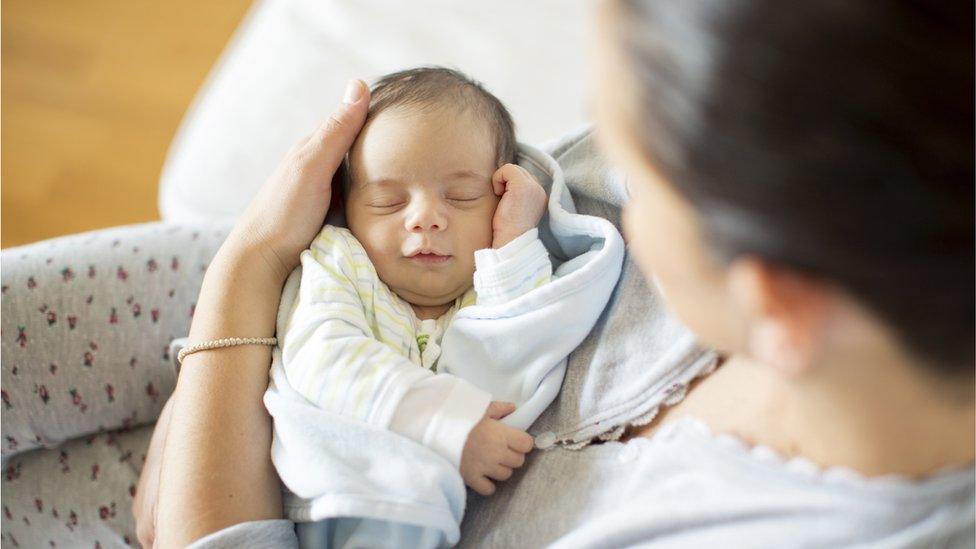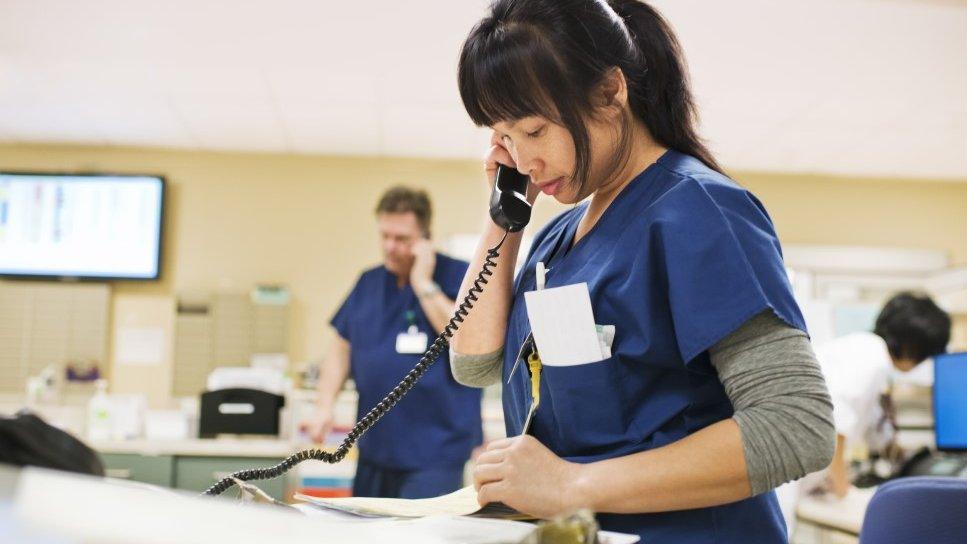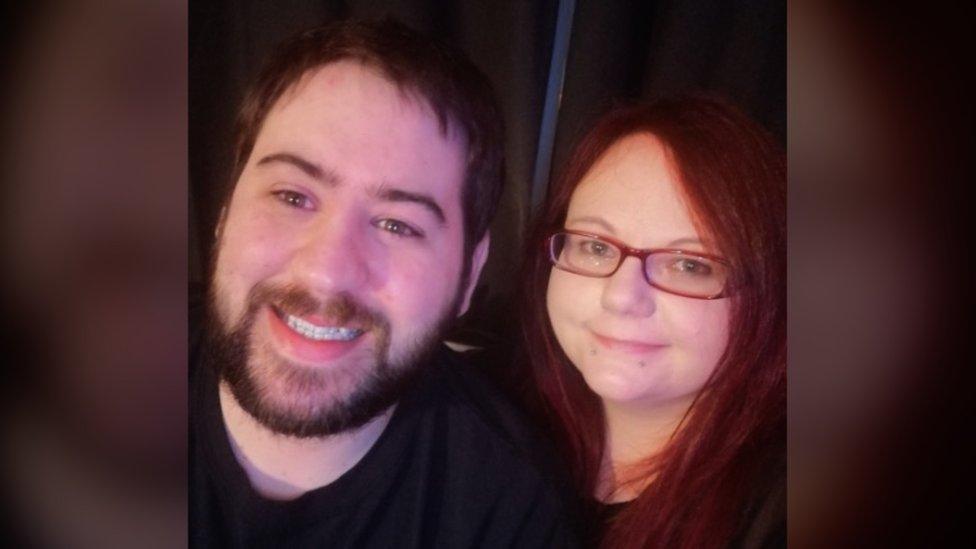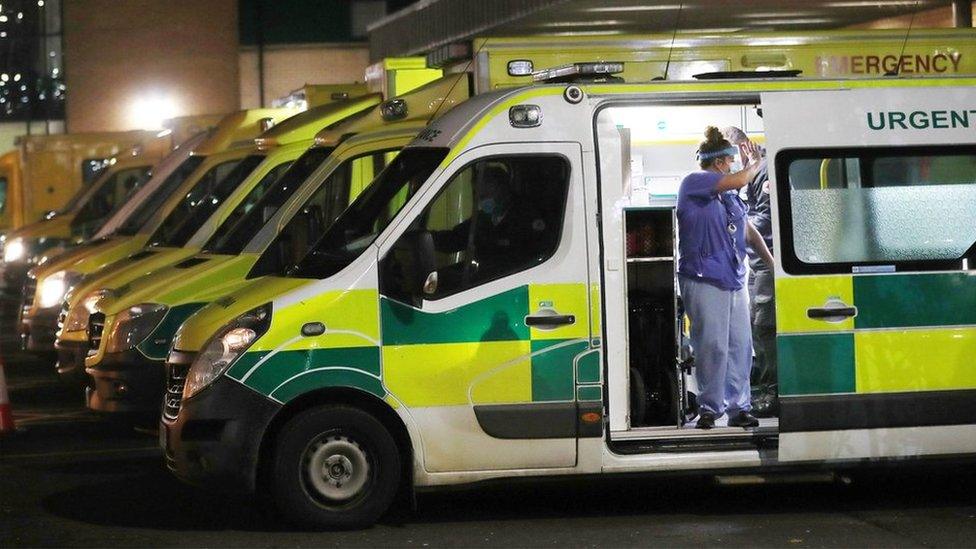Covid-19: Staff shortages in one in three maternity shifts
- Published
"This has been the worst it has been" - Karen Murray, Royal College of Midwives, on staff absences
Staff shortages have affected one in three shifts in postnatal and antenatal wards at the Royal Jubilee Maternity Hospital over the past six months.
The Belfast Trust said maternity services had experienced "unexpected absences" related to Covid-19.
Some 15% of shifts in the hospital's labour wards have been affected by staff absences in the last six months.
However, the trust said the hospital had "continued to deliver safe and effective care" for patients.
Absences due to Covid-19 and non-Covid-related reasons is affecting about one in 10 of all staff across the five health trusts, according to the latest figures.

The Royal College of Midwives director in Northern Ireland, Karen Murray, said Covid had exposed issues around the number of midwifery staff that are available.
"I think this has been the worst it has been; I think it has been that perfect storm. We recognised and we were raising issues about workforce before Covid," she said.
"Whilst our central services are being maintained and safety is being maintained, what we are seeing are things around the periphery of maternity services, that are now being stood down.
"Things like home births, for example, that we are unable to facilitate because we don't have enough midwives available."
'The situation is improving'
While some maternity services have been affected by the spread of Covid-19, Ms Murray said staffing levels are beginning to stabilise.
"We still consider ourselves to have issues around workforce but the situation is improving and if that improvement is maintained, I think we will get through this current situation."

BBC News NI also asked the Belfast Trust about concerns that two midwives had, on occasion, been left to care for 20 babies and their mothers in postnatal wards at the hospital.
In response, the trust said "on a small number of shifts two registered midwives, along with midwifery support workers and midwifery students have cared for multiple postnatal patients".
A spokesperson added that the "midwifery team is comprised of highly-skilled and experienced staff" and that "where a gap in staffing has been found, our team has quickly identified a solution to ensure appropriate" staffing levels.
The Belfast Health Trust said: "Despite the extraordinary challenges presented to health and social care throughout the pandemic, Belfast Trust is confident that the Royal Jubilee Maternity Service is providing a safe service for all its patients."
Challenges across NI's health trusts
The BBC also asked the four other health trusts in Northern Ireland questions around midwifery staffing in maternity settings.
While they were unable to provide figures around the number of staff missing from work, due to the difficulty in collating the information, they all said they had been affected by staff shortages as a result of the pandemic.
The Western Trust said labour wards had "run with less midwives than they require in both Altnagelvin and South Western Acute hospitals".
A Northern Trust spokesperson said "there are occasions when the maternity wards at Antrim and Causeway have had to operate without the full complement of staff".
The Southern Trust said "there have been occasions when we have had to operate without full staffing".
The South Eastern Trust said it recognises there are "challenges with staffing levels" affected by current vacancies within the nursing and midwifery workforce and the ongoing pandemic.
All five health trusts were however able to provide figures on the number of current job vacancies in midwifery:
Belfast Health Trust - four posts
South Eastern Health Trust - 25.2 posts
Northern Health Trust - 4.2 posts
Western Health Trust - 16 posts
Southern Health Trust - 18.5 posts
Related topics
- Published6 January 2022

- Published9 October 2021

- Published31 December 2021
